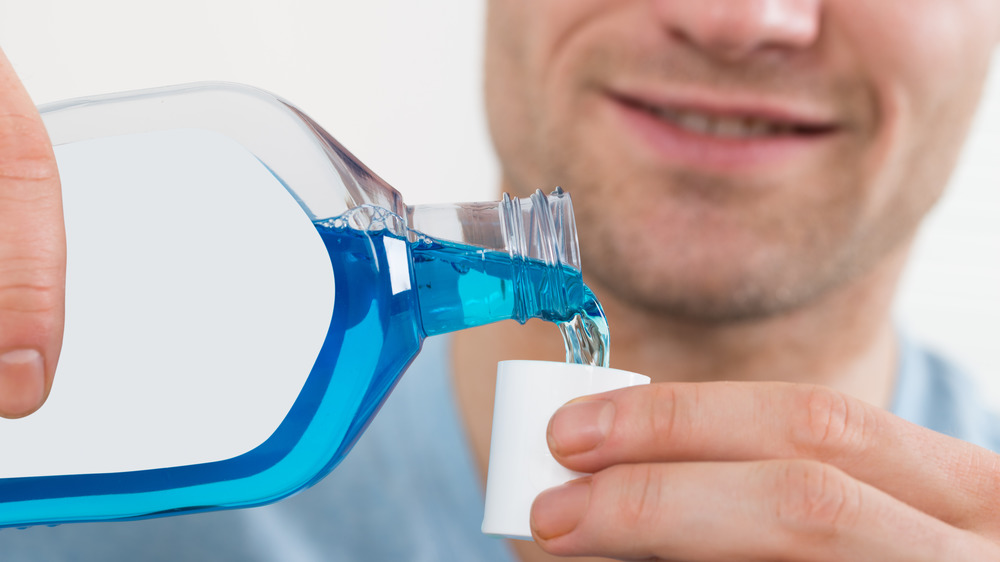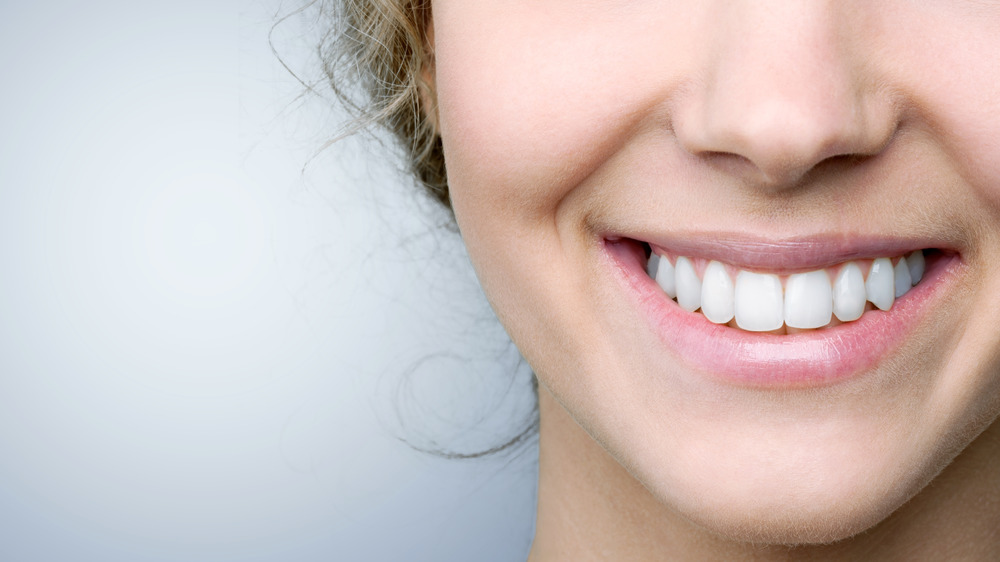Why Your Mouth Burns When You Use Mouthwash
If the thought of swishing Listerine around in your mouth for 60 seconds makes you cringe, it's likely that you've experienced the stinging burn that often comes with using mouthwash. Maybe you think "no pain, no gain" and swish away, or maybe you're part of the 38 percent of Americans who don't use mouthwash (via Mintel). Either way, you may be wondering why your mouthwash burns — and if there's any that doesn't.
The main reason so many mouthwashes burn is the star ingredient — alcohol. Most readily-available mouthwashes contain a large amount of alcohol — up to 25 percent or more (original Listerine contains a whopping 26.9 percent) — which often irritates sensitive gum tissue, as well as the tongue (via RDH Magazine, Healthline).
There are alcohol-free mouthwashes on the market, but even these can cause mouth burn in some people. That indicates a sensitivity to one of the other ingredients. Mouthwash can contain essential oils like peppermint, eucalyptus, and thyme, which may irritate the mouth. Mouthwash that's designed to whiten teeth often contains hydrogen peroxide, and rinses that are designed to obliterate bad breath may contain other antibacterial compounds. Each of these ingredients has the potential to irritate the mouth and cause a burning sensation. It may take trying several different kinds to find one that doesn't sting.
Mouthwash can contribute to good oral health
While there are some benefits to using mouthwash regularly, like teeth whitening, strengthening tooth enamel, and killing bacteria that causes bad breath and gum disease, dentists are not unanimous in recommending it for everyone.
It's possible that mouthwash does its job too well, killing not only the bad bacteria in the mouth but the good as well. The high alcohol content in many types of mouthwash can also dry out the mouth.
For those who enjoy using mouthwash and have normal, healthy teeth and gums, consider getting a mild, alcohol-free mouthwash that's free of antibacterial compounds. Matt Messina, a member of the American College of Dentists and a spokesperson for the American Dental Association told TIME, "Some rinses promote the idea that tingling or discomfort are signs the rinse is working, but that's really just marketing. You don't need to feel a burn when you rinse for the stuff to do its job. [...] You don't need mouthwash, but if you enjoy it, or you have bad breath and feel it helps, then there's no substantiated risks to rinsing once or twice a day."


